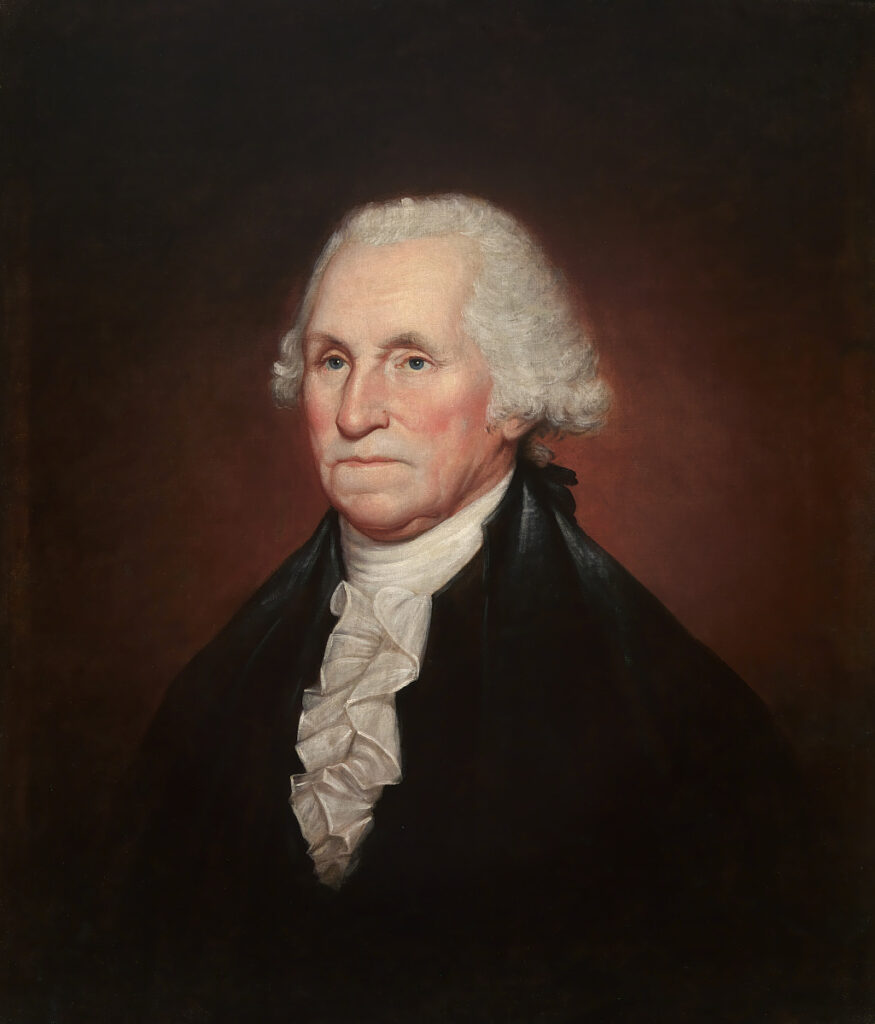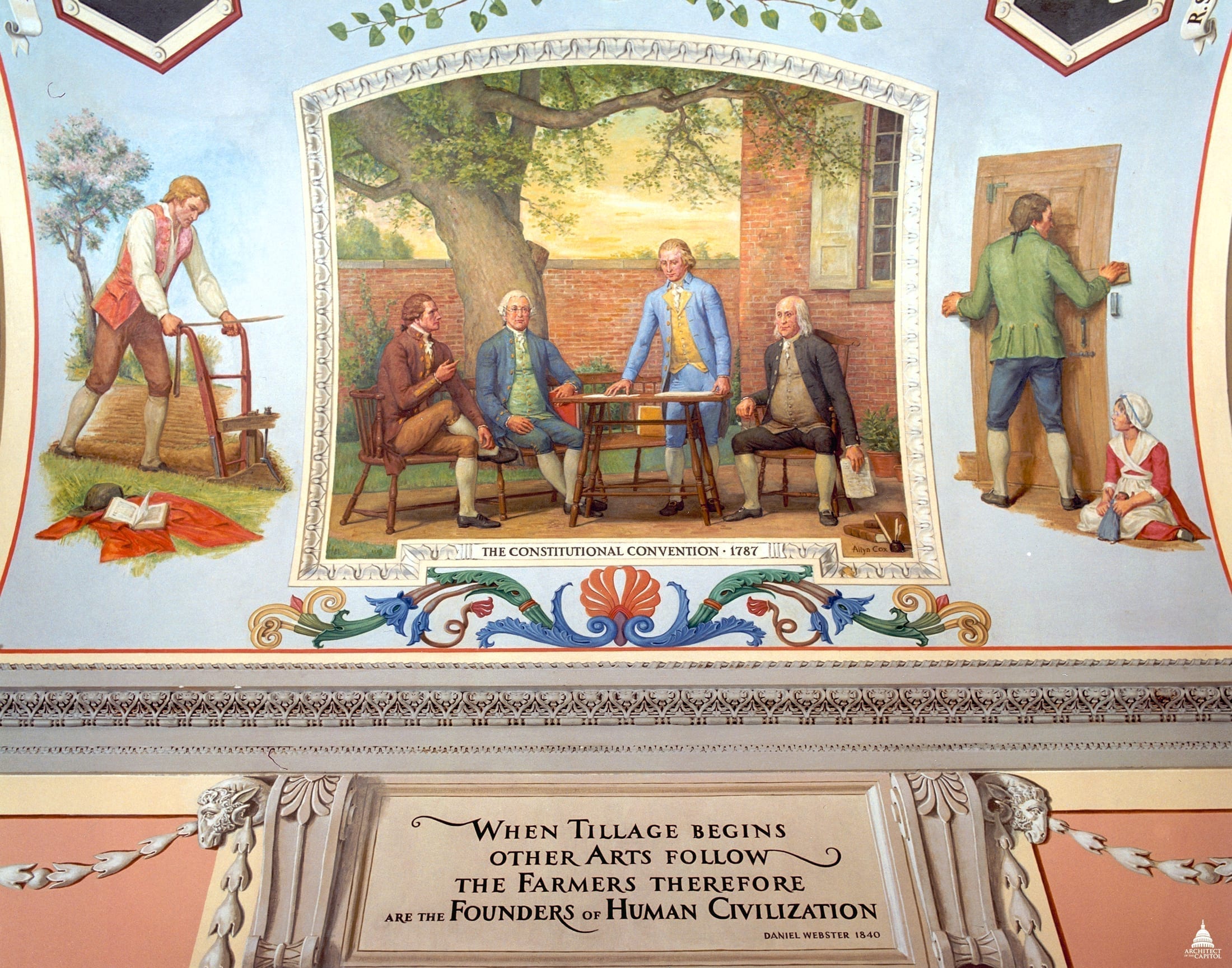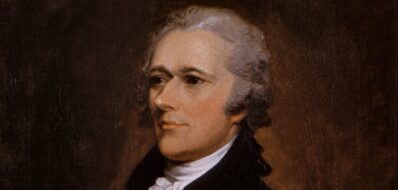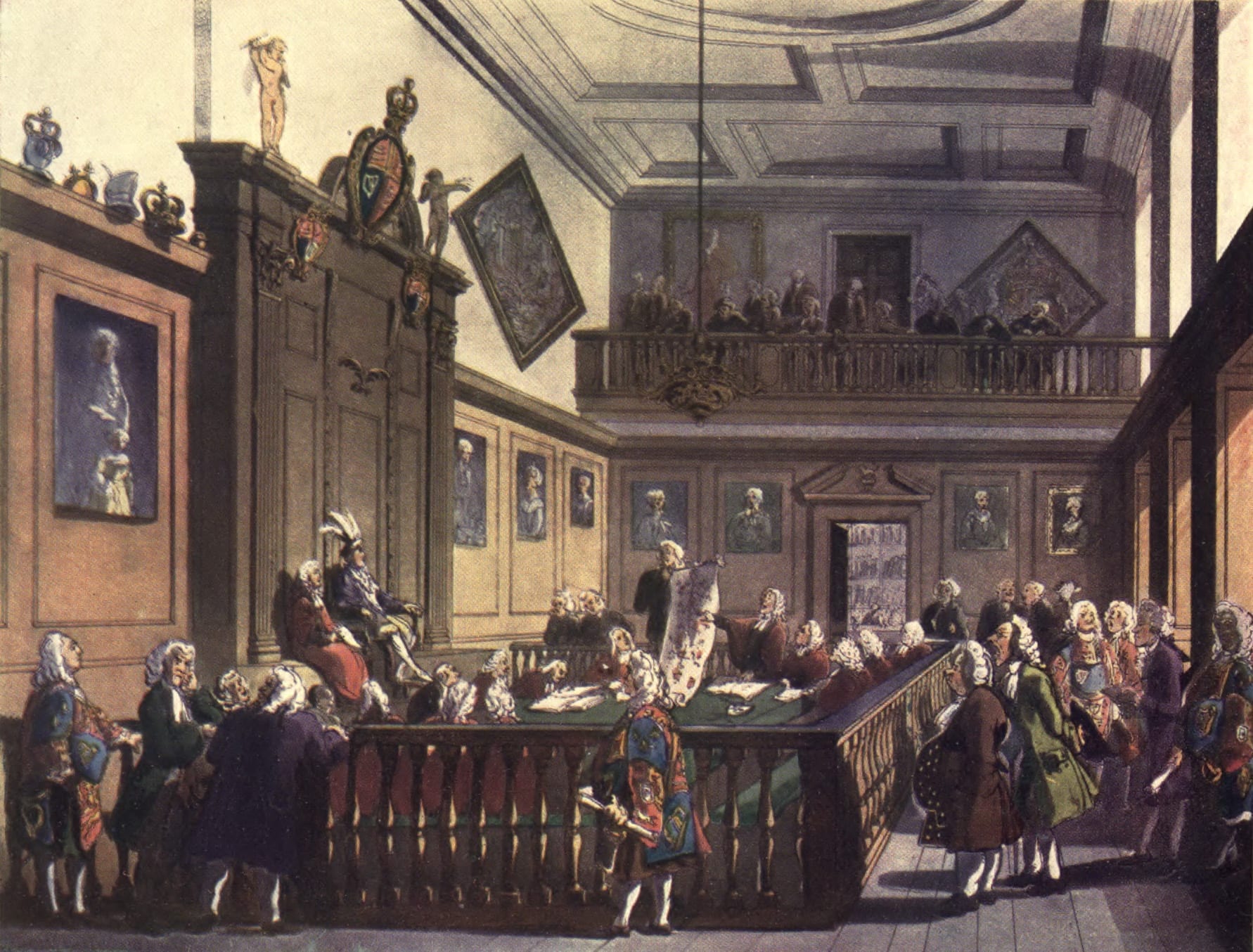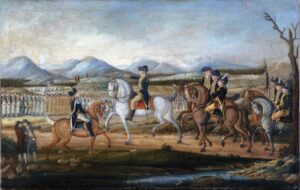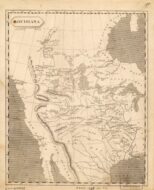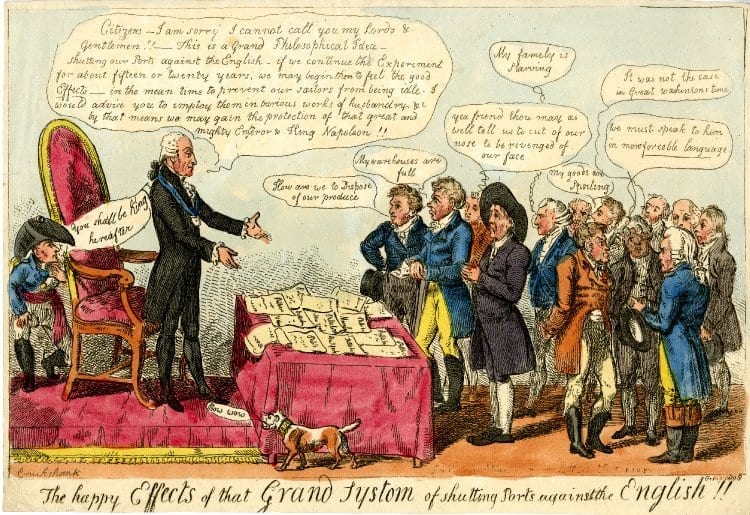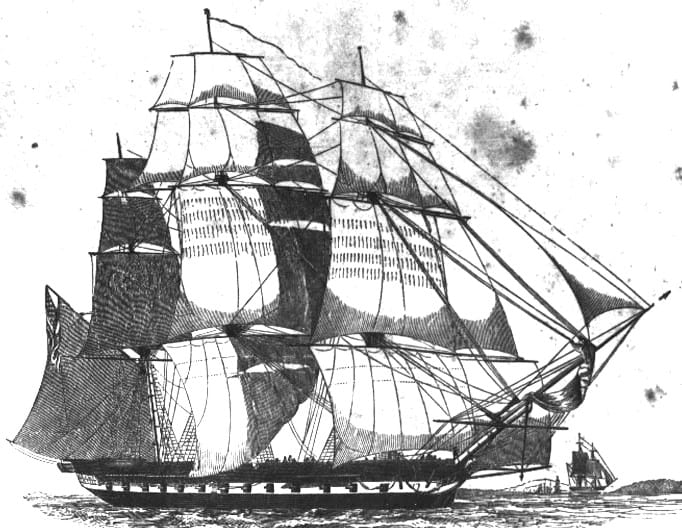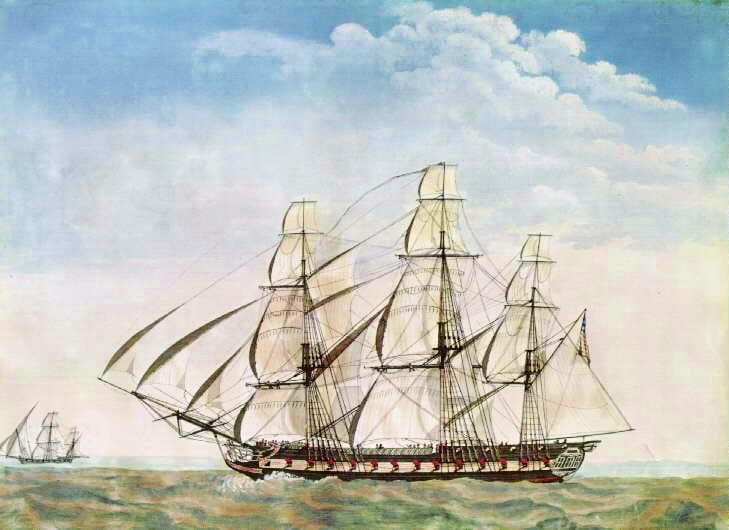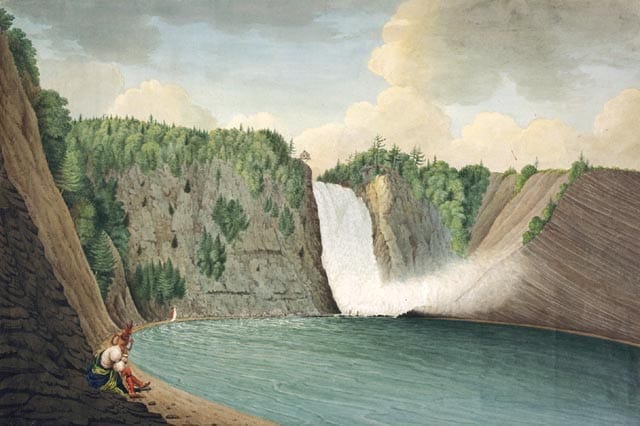“From George Washington to Arthur Young, 5 December 1791,” Founders Online, National Archives, https://teachingamericanhistory.org/1hgk.
Sir:
In a letter which I addressed to you on the 15th of August, acknowledging the receipt of your favor dated the 25th of January preceding, I promised to answer the queries contained in it, in detail.
Accordingly, I took measures for that purpose, by writing to some of the most intelligent Farmers in the States of New York, New Jersey, Pennsylvania, Maryland and Virginia; as you will perceive by the circular letter herewith enclosed: and have obtained the answers from the three last mentioned States that are thereunto annexed. I did not extend my enquiries to the Northward of New York, nor to the Southward of Virginia; because in neither extremity of the Union, in my opinion, is the climate, Soil, or other circumstances well adapted to the pursuits of a mere Farmer, or congenial to the growth of the smaller Grains.
I have delayed the information I am about to give you, in expectation of receiving answers which have been promised me from the States of New York and New Jersey; but as they are not yet arrived, and a Vessel is on the point of Sailing for London, I shall put this Packet under cover to Joshua Johnson Esqr. our Consul at that Port; with a request to him, that it may be forwarded to you, by a safe conveyance. The others shall follow as opportunities may present; it being my wish to give you a comprehensive view of the different parts of this Country: although I have no hesitation in giving it at the same time as my opinion, if I had a new establishment to make in it, that it would be, under the knowledge I entertain of it at present (and I have visited all parts from New Hampshire to Georgia inclusively) in one of the three States of which you are furnished with particular Accounts. New York and New Jersey do not differ much in Soil, or Climate, from the Northern parts of Pennsylvania. Both are pleasant, and both are well improved, particularly the first. But the Country beyond these, to the Eastward, (and the farther you advance that way it is still more so) is unfriendly to Wheat, which is subject to a blight or mildew, and of late years, to a fly, which has almost discouraged the growth of it. The lands, however, in the New England States are strong, and productive of other Crops; are well improved; populously seated; and as pleasant as it can be in a Country fast locked in Snow sevl. months in the year.
To the Southward of Virginia the climate is not well adapted to Wheat; and less and less so as you penetrate the warmer latitudes; nor is the Country so thickly settled, or well cultivated. In a word, as I have already intimated, was I to commence my career of life anew, I shd. not seek a residence north of Pennsylvania, or South of Virginia: nor, but this I desire may be received with great caution, for I may, without knowing I am so, be biased in favor of the River on which I live, should I go more than 25 miles from the margin of the Potomac, in less than half the distance, in some places I might seat myself either in Pennsylvania, Maryland or Virginia, as local circumstances might prompt me.
Having said thus much, some of the reasons which lead to this opinion, may be expected in support of it. Potomac River then, is the center of the Union. It is between the extremes of heat and cold. It is not so far to the south as to be unfriendly to grass, nor so far north as to have the produce of the Summer consumed in the length, and severity of the winter. It waters that soil, and runs in that climate, which is most congenial to English grains, and most agreeable to the Cultivators of them.
It is the River, more than any other, in my opinion, which must, in the natural progress of things, connect by its inland navigation (now nearly completed 190 measured miles up to Fort Cumberland, at the expense of £50,000 Sterlg. raised by private subscription) the Atlantic States with the vast region which is populating (beyond all conception) to the Westward of it. It is designed by law for the seat of the Empire; and must, from its extensive course through a rich and populous country become, in time, the grand Emporium of North America. To these reasons may be added, that, the lands within, and surrounding the district of Columbia are as high, as dry, and as healthy as any in the United States; and that those above them, in the Counties of Berkeley in Virginia, Washington in Maryland, and Franklin in Pennsylvania (adjoining each other) at the distance of from Sixty to 100 miles from Columbia, are inferior in their natural state to none in America.
The general Map of North America, which is herewith enclosed, will shew the situation of this district of the United States. And on Evan’s Map of the Middle Colonies, which is on a larger scale, I have marked the district of Columbia with double red lines; and the Counties adjacent to, and above it, of which particular mention has been made, with single red lines.
The last mentioned Map shows the proximity of the Potowmac (which is laid down from actual Survey) to the Western Waters, and it is worthy of observation, that the Shenandore, in an extent of 150 miles from its confluence, through the richest tract of land in the State of Virginia, may (as is supposed) be made navigable for less than £2,000. The South branch of Potowmac (100 miles higher up, and) for a hundred miles of its extent, may be made navigable for a much less sum. And the intermediate waters on the Virginia side, in that proportion, according to their magnitude. On the Maryland side (the river Potowmac to the head of the North branch being the boundary between the two States) the Monocasy and Conogocheag are capable of improvement to a degree which will be convenient and beneficial to the Inhabitants of the State, and to parts of Pennsylvania.
The local, or State taxes, are enumerated in the answers to the circular letter; and these from the nature of the Government, will probably decrease. The taxes of the General Government will be found in the Revenue laws, which are contained in the volume that accompanies this letter.
"The Pennsylvania Mercury, and Philadelphia Price current" is sent that you may see what is, and has been, the prices of the several enumerated Articles which have been bought, and sold in this market at different periods, within the last twelve months.
An English farmer must entertain a contemptible opinion of our husbandry, or a horrid idea of our lands, when he shall be informed that not more than 8 or 10 bushels of Wheat is the yield of an Acre; but this low produce may be ascribed, and principally too, to a cause which I do not find touched by either of the Gentlemen whose letters are sent to you, namely, that the aim of the farmers in this Country (if they can be called farmers) is not to make the most they can from the land, which is, or has been cheap, but the most of the labor, which is dear, the consequence of which has been, much ground has been scratched over and none cultivated or improved as it ought to have been; Whereas a farmer in England, where land is dear and labor cheap, finds it his interest to improve and cultivate highly, that he may reap large crops from a small quantity of ground. That this last is the true, and the first an erroneous policy, I will readily grant, but it requires time to conquer bad habits, and hardly anything short of necessity is able to accomplish it. That necessity is approaching by pretty rapid strides.
If from these communications you shall derive information or amusement, it will be but a small return for the favors I have received from you; and I shall feel happy in having had it in my power to render them. As they result from your letter of the 25th of January, and are intended for your private satisfaction it is not my wish that they should be promulgated as coming from me. With very great esteem I am etc.


